TESTIMONIALS
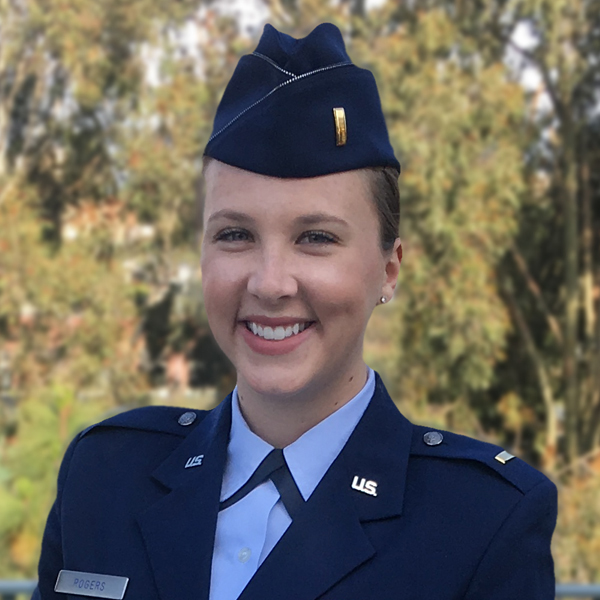
Janelle Rogers
Air Force 2nd Lt.
My internship at LLNL helped me gain professional skills for talking to supervisors, people skills for working on a team, confidence in public speaking, and self-discipline to meet deadlines.
My time at the LLNL was also influential in my military career: At the Lab, I networked with and got to know ROTC interns from all military branches. In talking with all of them, I gained a better appreciation for the fact that there is something to be said about what ALL branches bring to the table. Interns spoke enthusiastically about what their branches did and what they were hoping to be assigned to once they went on active duty.
After meeting all these people, I leave the Lab with a more profound respect for each branch’s mission.
I also benefitted from networking with other civilian students, as well as Lab employees and researchers. I met Robert Baus in the Lab’s IT center when I took my work computer in to be serviced. He was the technician assigned to me. We started talking, and I found out he was retired from the Navy and had a very distinguished career in Special Forces. I was in the IT center a number of times over the summer, and each time, Robert and I talked extensively—half about the military and half about everyday life. I was profoundly influenced by Robert and our conversations.
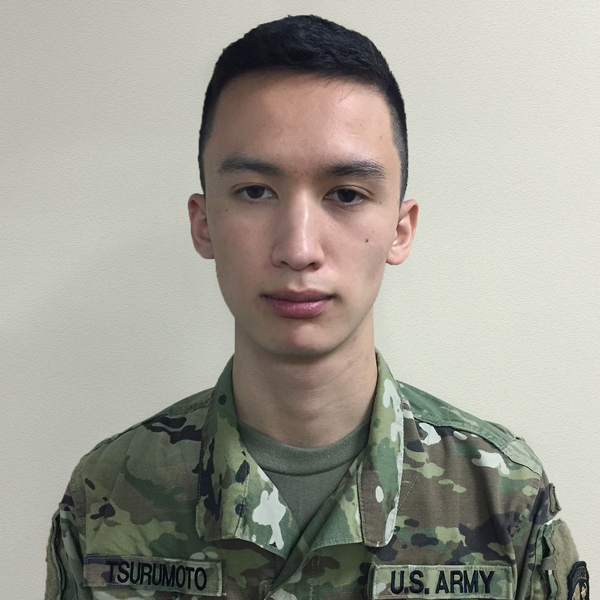
Maxwell Tsurumoto
Army Cadet
The opportunity to conduct research at LLNL turned into one of the most impactful twelve weeks of my undergraduate experience. The experience has allowed me to understand not only the impact the Lab has on the military, but also its vital importance for the continued security of our nation from conventional and emerging threats. This new understanding has inspired me to pursue further undergraduate research experience and possibly graduate school after completing my undergrad.
This experience will ultimately inform my long-term career path within the military, as well as how to continue to serve after my career in the Army. In the meantime, the Lab will serve as a resource during my time in the military, especially relating to chemical, biological, radiological and nuclear defense, global terrorism, and JCATS.
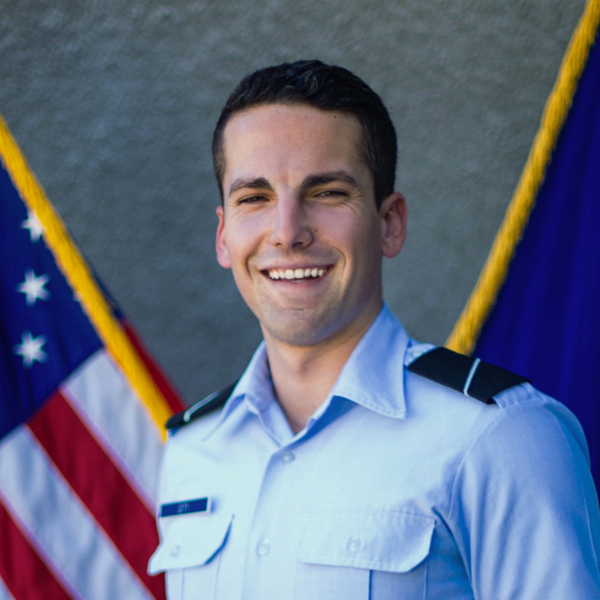
Joshua Ott
Air Force Cadet
This internship allowed me to experience the process of military-related research and development work. I have such a better perspective on the purpose of the national laboratories, and an even greater respect for the civilians and military members that work for these organizations. I gained valuable hands-on engineering experience while also getting to hear from leading scientists and former Air Force generals.
One of my favorite parts of the internship was getting to meet other ROTC and academy cadets from different detachments and branches. There was such a diversity of cadets, which made it an even more enjoyable experience. The other students that I was working with on my project were all civilians, so it was awesome to be able to work with them as well as the other ROTC and academy cadets.
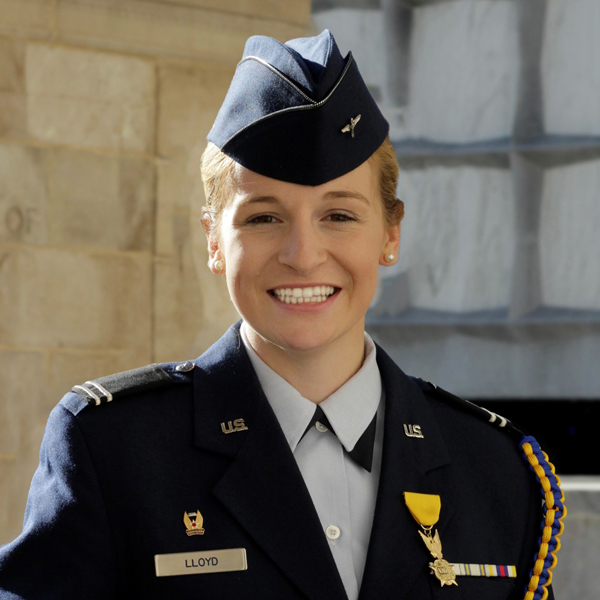
Amanda Lloyd
Air Force 2nd Lt.
The ROTC program at LLNL is a unique opportunity for cadets and recently-commissioned officers to experience top-tier research committed to the mission of national defense. In the summer of 2018, I participated in a 6-week internship in the Lab’s Forensic Science Center. As a cadet, I was working on a counter-chemical warfare project where the goal was to develop a fast, effective method for determining the specific identities of nerve agents in various soil samples.
With an EAD for pilot training of April 2020, I had nearly a year before I began my Air Force career after graduating. I came back to the Forensic Science Center, where the Newly Commissioned Officer Program allowed me to participate in meaningful work that bridged the gap between my undergraduate chemistry work and my active duty pilot career to come.
Very few jobs can accommodate the short-term and unknown timeline that a moving active duty date creates; however, LLNL was able to provide me with a flexible opportunity built for my very situation. This time at LLNL, I worked as an analytical chemist to determine the purity of high explosives as they relate to the nuclear weapon stockpile.
The ROTC program offers weekly seminars and talks in the summer, allowing cadets/lieutenants from across the Lab to be exposed to the countless other LLNL projects/programs that support defense missions. The program also offers ROTC Day, where cadets tour the Lab’s the state-of-the-art facilities, meet researchers, and hear from current military interns. The ROTC internships at LLNL have been an eye-opening experience and I highly recommend them to any other cadet/lieutenant looking to discover a powerful connection between STEM-based research and the defense missions that we will serve in in the future.
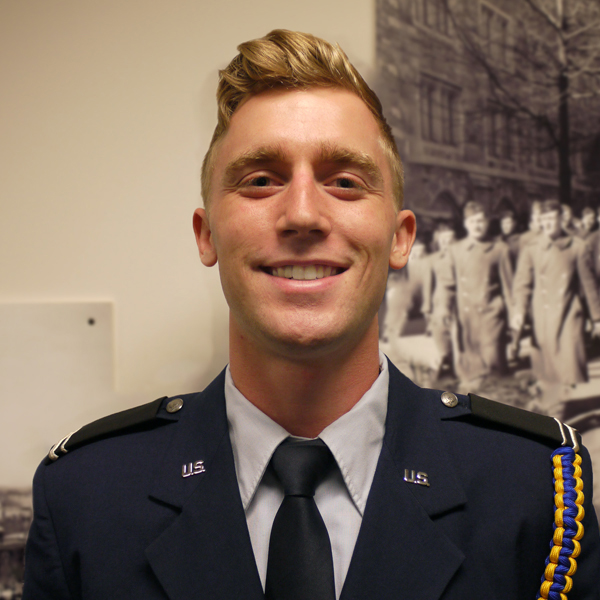
Eric Sanderson
AFROTC
As an undergraduate studying international relations, I was originally unsure what opportunities existed for me at LLNL. The Lab has exciting, important projects, but I did not know how I could contribute without having a background in STEM. Before I applied, I inquired about political science work at the Lab, and was directed to a variety of opportunities. After exploring the options, I chose to intern at the Center for Global Security Research.
My limited understanding of nuclear weapons and strategy grew, alongside my interest in the subject, over the summer.
I came to the Lab with regional expertise from Eastern Europe and Russia, but I didn’t fully appreciate the perspective available through nuclear strategy research until working at LLNL. As a student of international relations, I look forward to applying the knowledge and skills gained at CGSR in my academic and professional future.
Besides the opportunity at the Lab, I went to Livermore trying to dispel my romantic notions about California. Instead, the area exceeded my already high expectations, and I'm now even more eager to make my way back there. Whether it's in San Francisco, Yosemite, or Livermore itself, there's always something to do as an intern at LLNL.
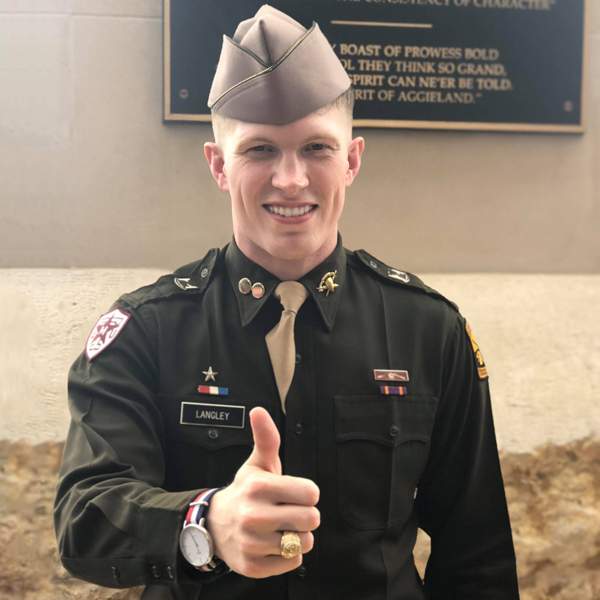
John Langley
Army Cadet
During my internship at LLNL, I had the opportunity to work with a team of data physicists whose unique job was to structure and test the huge amounts of data being produced by nuclear scientists. My part in this effort was to verify and validate upgrades to the nuclear data structures by finding bugs in data and codes and bringing them to the attention of the team.
The immediate benefit of my experience was being able to interact with specialists up and down the nuclear data pipeline, and learn a lot along the way. I am now applying the knowledge I gained in my computational methods class for nuclear engineering at Texas A&M University.
The ROTC events and multiple seminars, as well as speaking with Lab employees who had formerly served in the Army, rounded out my experience. It opened my eyes to the possibility of doing meaningful work in the military if you work hard and are focused.
Networking was one of my favorite things to do at Livermore, and the ROTC side just made it even more exhilarating. There were probably over 200 interns, multiple intern events, and special ROTC briefings. This meant that my free time was always filled with exciting activities such as hiking in Yosemite and hitting San Francisco and the beach for a weekend. San Francisco is my new favorite city.




